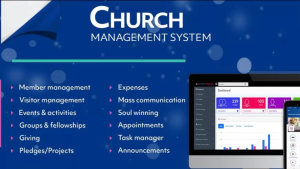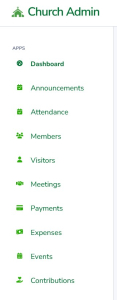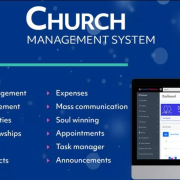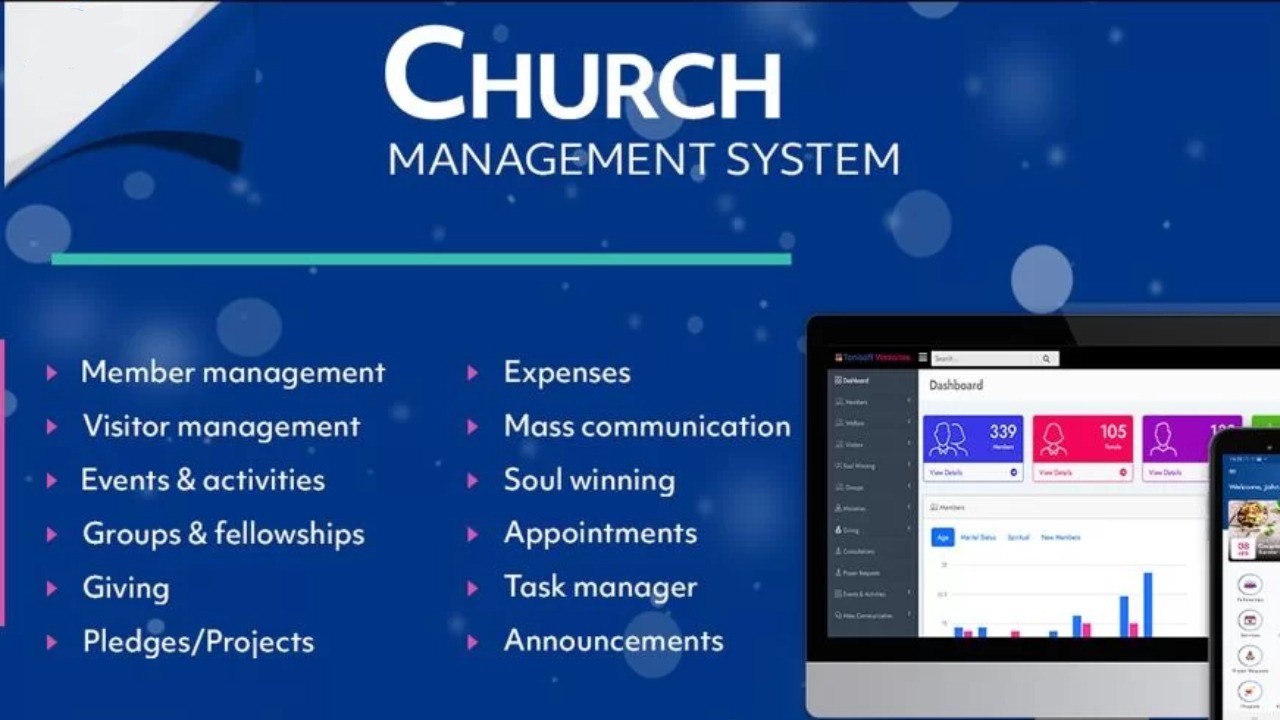How Churches Manage Finances and Donations Transparently

How Churches Manage Finances and Donations
Churches play a significant role in communities, providing spiritual guidance, social services, and charitable support. However, managing finances and donations transparently is essential to maintain trust among congregants and the public. Financial mismanagement or lack of accountability can lead to skepticism, reduced contributions, and even legal issues.
Why Transparency in Church Finances is Important
1. Building Trust with Congregants
Transparency reassures church members that their contributions are being used responsibly. When donors understand how their money is allocated, they are more likely to continue supporting the church financially.
2. Legal and Ethical Compliance
Churches must adhere to financial regulations, including tax laws and nonprofit governance standards. In many countries, churches enjoy tax-exempt status, which comes with the expectation of financial integrity and proper reporting.
3. Efficient Use of Resources
Proper financial management helps churches allocate resources effectively to support their mission, maintain facilities, pay staff, and fund outreach programs.
4. Prevention of Fraud and Misuse
Lack of financial transparency can lead to embezzlement and misuse of funds. Implementing checks and balances helps prevent financial misconduct.

How Churches Manage Finances and Donations
Best Practices for Transparent Financial Management in Churches
1. Establish a Church Budget
A well-planned budget ensures that church finances are allocated properly. The budget should include expenses for:
- Salaries and staff compensation
- Building maintenance and utilities
- Outreach programs and missions
- Administrative costs
- Emergency funds
- Savings for future projects
Church leaders should present the budget to members annually and allow for questions and input.
2. Maintain Accurate Financial Records
Churches should keep detailed records of all income and expenses. This includes:
- Tithes and offerings
- Special donations
- Grants and sponsorships
- Operational costs
- Asset purchases
Using accounting software such as Churchesadmin, QuickBooks, Aplos, or PowerChurch can help churches track finances effectively.
3. Implement Financial Policies and Controls
To prevent misuse of funds, churches should have clear financial policies, including:
- Dual authorization for large expenses
- Regular audits by an independent accountant
- Clear guidelines on how donations are allocated
Having a finance committee can also add an extra layer of accountability.
4. Regular Financial Reporting
Churches should provide regular financial reports to members, including:
- Monthly or quarterly income and expense reports
- Annual financial statements
- Detailed reports on fundraising activities
Publishing reports on the church website or in bulletins enhances transparency.
5. Encourage Electronic Giving and Tracking
Many churches now use digital payment platforms like:
- Mobile money services (e.g., M-Pesa, Venmo, PayPal)
- Bank transfers
- Church management software with donation tracking
These systems provide automatic receipts to donors and help track contributions more accurately.
6. Clearly Define the Use of Donations
Church leaders should communicate how donations are used. For example:
- A building fund should only be used for construction or maintenance
- Mission funds should go directly to outreach programs
- Special offerings should be allocated as designated by donors
This ensures that money is spent according to the intent of the givers.
7. Conduct Independent Audits
Regular audits by an external accountant help confirm the integrity of financial records. These audits:
- Identify any discrepancies or fraud
- Provide credibility to financial reports
- Help churches comply with tax laws
8. Train Church Leaders and Staff on Financial Management
Church leaders should receive training in financial stewardship to ensure they understand:
- Budgeting and financial planning
- Ethical handling of funds
- Tax compliance for nonprofit organizations
Workshops and courses in financial management can enhance their ability to oversee church finances effectively.
9. Encourage Open Communication on Finances
Members should feel comfortable asking questions about church finances. Town hall meetings, Q&A sessions, and open financial discussions foster transparency and accountability.
10. Create a Giving Culture with Accountability
Encouraging giving should be accompanied by responsible financial stewardship. Churches should:
- Acknowledge donors without pressuring them
- Share success stories of how donations are making an impact
- Show gratitude through annual donor appreciation events

How Churches Manage Finances and Donations
Challenges Churches Face in Managing Finances Transparently
1. Lack of Financial Expertise
Many churches rely on volunteers for financial management, and some may lack proper accounting knowledge. Seeking professional financial guidance can help address this issue.
2. Resistance to Transparency
Some church leaders may hesitate to disclose financial information due to fear of criticism or misunderstanding. However, transparency builds trust and encourages responsible giving.
3. Irregular Income Streams
Unlike businesses with predictable revenue, church income depends on tithes and donations, which can fluctuate. Churches must plan budgets conservatively and create financial reserves.
4. Handling Designated Funds Properly
Churches must ensure that designated funds (e.g., for missions or building projects) are used specifically for their intended purposes to maintain donor trust.
5. Fraud and Financial Mismanagement
Cases of financial fraud in churches have led to scandals and loss of credibility. Strong internal controls and independent audits can mitigate these risks.

How Churches Manage Finances and Donations
Conclusion
Transparency in church finances is crucial for maintaining trust, ensuring legal compliance, and making efficient use of resources. By implementing best practices such as budgeting, accurate record-keeping, regular reporting, and independent audits, churches can uphold financial integrity. Congregants and donors are more likely to support a church that demonstrates accountability and responsible financial stewardship. Ultimately, a financially transparent church can focus more on its spiritual mission and community impact without financial controversies hindering its progress.
















